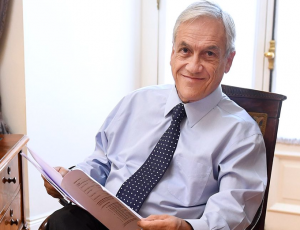Chile will inaugurate the convention tasked with writing its new constitution on July 4, President Sebastian Pinera announced Sunday, as the South American country moves towards replacing its current conservative, dictatorship-era charter.
Over the course of nine months, the 155-member drafting body will have to balance a popular clamor for profound social change with the need to maintain a robust economy as it rewrites the old constitution, which dates from the rule of Augusto Pinochet.
Their term could be extended for three more months, and the body will need a two-thirds majority to approve the draft that will be put to a national referendum next year, in which voting will be mandatory.
Also Read | Women’s success ends up being counter-productive in Chile vote
“Today we are calling for the first installation session of the Constitutional Convention, which will take place on Sunday, July 4, 2021, at 10:00 in the morning at the National Congress building in the city of Santiago,” Pinera said in an announcement from the La Moneda presidential palace.
Chile’s existing constitution dates from 1980, enacted at the height of Pinochet’s 1973-1990 rule, and limits the role of the state while bolstering private enterprise.
It is blamed by many for the deep-rooted gulf between rich and poor, but hailed by others, mainly on the right, for the country’s many decades of economic growth.
Also Read | Chile completes voting for body to rewrite dictatorship-era constitution
A new constitution was a key demand of 2019 protests that left several dozen dead.
In choosing the body to write the new charter, voters in May turned their backs on traditional political parties and flocked to independent candidates with no party affiliation but overwhelmingly leftist or socialist ideas.
Many of the independent candidates — an assortment of teachers, writers, journalists, lawyers, and activists — were involved in or inspired by the 2019 uprisings and campaigned with promises of social change.
“This represents not only a great opportunity, but above all, an enormous responsibility to Chile and the Chileans of today and those to come,” said Pinera, describing the convention as a “historic milestone.”






